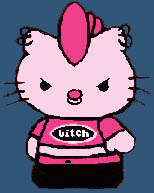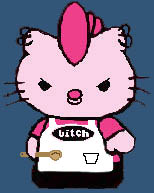Green Ronin Past, Present, and Future
I found myself moved to make a post over on ENWorld today, where people were discussing our recent announcement that Green Ronin will not be signing onto Wizards of the Coast's new Game System License to support 4th Edition Dungeons & Dragons. It got a little long, so rather than spend more time trying to write something else up for the ol' blog, I'm going to reproduce the post here.
Green Ronin was formed in early 2000 and our first product Ork! the Roleplaying Game was released in June of that year. We shortly thereafter decided to dabble in this "d20 thing" by planning out a couple adventures, adventures that went on to become the Freeport Trilogy, but when we made that decision the OGL and the d20 STL were completely untested. Make no mistake, we certainly benefited from the license and will never deny the impact that d20 had on the direction of our company but I think it's quite overstating the case to claim that we "wouldn't exist if not for the OGL."
Green Ronin's founders had more than 35 years of combined experience in the game industry when we formed the company, experience not only in roleplaying games but also cards, miniatures, magazines, board games, and more. Due to the enthusiastically favorable response to our d20 dabbling, you could say we were "distracted" from some of our other possible projects for a while but we did continue to work on other things, even during the height of the demand for d20 material. The Spaceship Zero Roleplaying Game and Faery's Tale Deluxe, the Torches & Pitchforks card game and the Walk the Plank card game, map books like Dungeons of Doom and Cartographica, or our recent non-fiction hit Hobby Games: the 100 Best. We've always had our fingers in things other than d20 products.
I've often seen people talk about how third party publishers failed to support WotC or D&D, something I think Charles Ryan first floated here on EN World back when he was still the D&D Brand Manager. Green Ronin published almost 100 straight-up d20/D&D support products without counting support for d20 Modern or D20 Future. My feeling is that WotC's expectation that unrestricted numbers of third party support companies could continue to endlessly support straight-up D&D in the face of the product glut and unending direct competition was unrealistic. The market was demanding more and WotC themselves were not filling those holes; it's utterly predictable that companies would expand out to fill those niches and strive to create products to meet fan demand (as well as differentiate themselves from their competition). That was no more a "betrayal" than WotC designing a new edition of D&D... it's the natural course of business.
While we are mindful of the role the OGL played in the development of Green Ronin, I personally don't feel we "owe our success" to it. We helped manufacture support for WotC's business according to the plan they offered and by doing so we received exposure for our company; it was a mutually beneficial relationship. Our success, on the other hand, was not granted to us from on high by Wizards of the Coast or any other Powers That Be. We competed, we worked hard, we made mistakes on some things and chose wisely on others and earned our success through our efforts. In the far less mutually beneficial climate of 4th Edition and the GSL, I am confident that we will continue to produce excellent work and find an audience for it, starting with A Song of Ice and Fire Roleplaying and any number of things beyond.
The 3rd party didn't prop D&D up, the D20 license and OGL gave these companies a market. GR, Mongoose, Malhavok... none of these companies formed, made games, then dabbled in D20. They were d20 companies that branched out.
[...]
The amusing part is how many of these companies that find the GSL unacceptable wouldn't exist if not for the OGL.
Green Ronin was formed in early 2000 and our first product Ork! the Roleplaying Game was released in June of that year. We shortly thereafter decided to dabble in this "d20 thing" by planning out a couple adventures, adventures that went on to become the Freeport Trilogy, but when we made that decision the OGL and the d20 STL were completely untested. Make no mistake, we certainly benefited from the license and will never deny the impact that d20 had on the direction of our company but I think it's quite overstating the case to claim that we "wouldn't exist if not for the OGL."
Green Ronin's founders had more than 35 years of combined experience in the game industry when we formed the company, experience not only in roleplaying games but also cards, miniatures, magazines, board games, and more. Due to the enthusiastically favorable response to our d20 dabbling, you could say we were "distracted" from some of our other possible projects for a while but we did continue to work on other things, even during the height of the demand for d20 material. The Spaceship Zero Roleplaying Game and Faery's Tale Deluxe, the Torches & Pitchforks card game and the Walk the Plank card game, map books like Dungeons of Doom and Cartographica, or our recent non-fiction hit Hobby Games: the 100 Best. We've always had our fingers in things other than d20 products.
I've often seen people talk about how third party publishers failed to support WotC or D&D, something I think Charles Ryan first floated here on EN World back when he was still the D&D Brand Manager. Green Ronin published almost 100 straight-up d20/D&D support products without counting support for d20 Modern or D20 Future. My feeling is that WotC's expectation that unrestricted numbers of third party support companies could continue to endlessly support straight-up D&D in the face of the product glut and unending direct competition was unrealistic. The market was demanding more and WotC themselves were not filling those holes; it's utterly predictable that companies would expand out to fill those niches and strive to create products to meet fan demand (as well as differentiate themselves from their competition). That was no more a "betrayal" than WotC designing a new edition of D&D... it's the natural course of business.
While we are mindful of the role the OGL played in the development of Green Ronin, I personally don't feel we "owe our success" to it. We helped manufacture support for WotC's business according to the plan they offered and by doing so we received exposure for our company; it was a mutually beneficial relationship. Our success, on the other hand, was not granted to us from on high by Wizards of the Coast or any other Powers That Be. We competed, we worked hard, we made mistakes on some things and chose wisely on others and earned our success through our efforts. In the far less mutually beneficial climate of 4th Edition and the GSL, I am confident that we will continue to produce excellent work and find an audience for it, starting with A Song of Ice and Fire Roleplaying and any number of things beyond.
Labels: game industry






I sometimes wonder how much of this is the product of people who didn't start gaming until ~2003, and have no sense of the history of the hobby pre-OGL and WotC-era D&D?
And Ork! was a lot of fun. :)
*sighs* Voc again. I'd say more in your defense Nic but I'm currently banned from En World. That being said, it seems to me people like Voc view negatively things said negatively about WotC merely because "oh it's not quite what we wanted" or something like that. In any case Nik, know that you and Chris have my support. Just might come with just A Song of Ice and Fire.
Thanks for the support, guys. :)
What'd you do to get banned, Nightfall?
Nik,
It's a long drawn out story, but short version is I did things that the mods didn't quite approve (some of them anyway). That plus some in the community didn't care much for my posting style (added to the fact I will admit I can be...irritating both online and offline at times.) Thus after much time and patience worn down (and a couple compromises on my part) EN World and I "parted" ways. Suffice to say I hold no true ill will towards En World itself. Merely...concern about some mods and their moderation style.
In looking at the GSL it appears that you can, simply by publishing under the GSL, opt in to the GSL if you've previously published under the old OGL. The downside, however, is that you can no longer re-publish your prior (OGL) materials and are limited to selling of existing stock. That didn't play a role in your decision did it? It certainly would have in mine if I were in your shoes. It does have the distinct downside (for 3rd party vendors) of killing off you prior catalog of works based on the OGL.